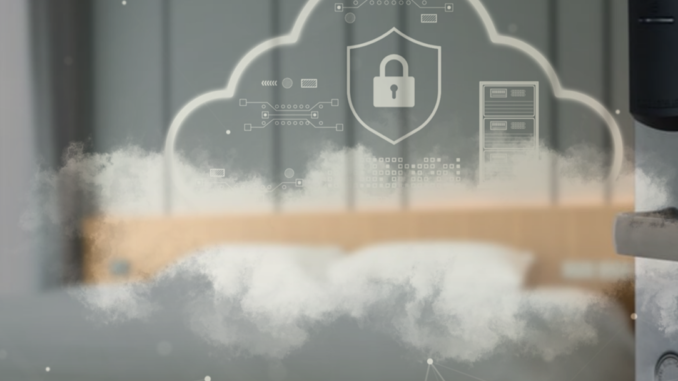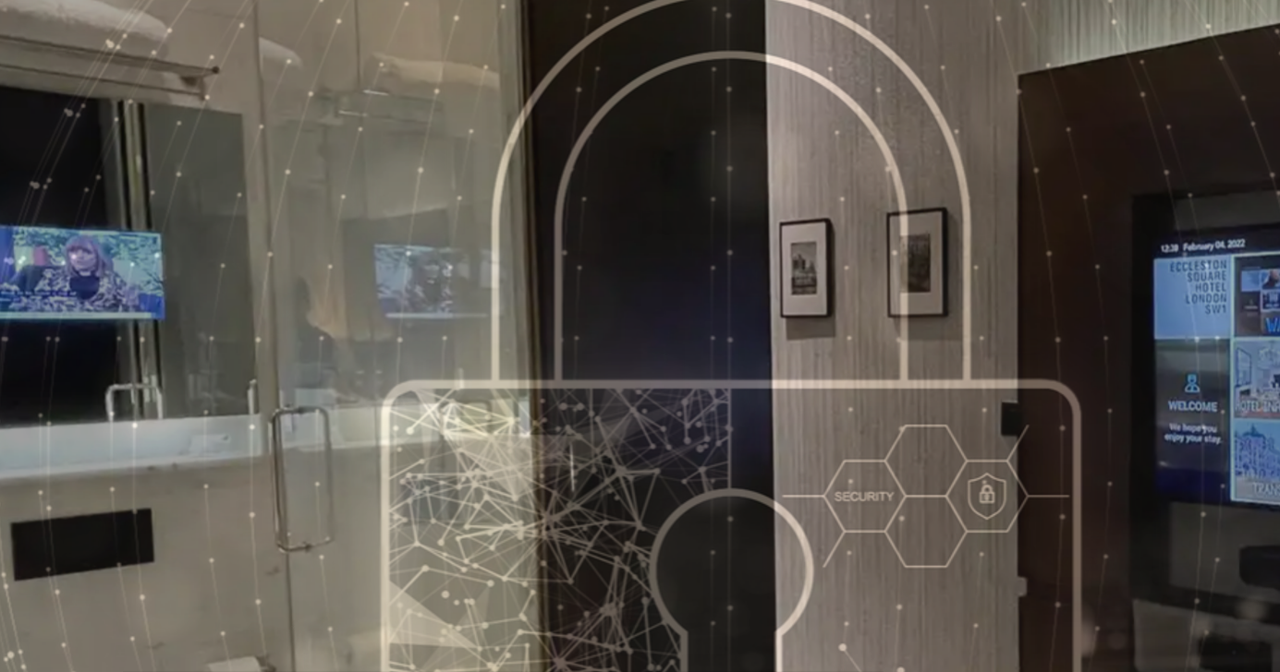
By Mariana Rosen, research analyst, Starfleet Research - 6.5.2024
This article is excerpted with permission from the new research report IoT Security: Best Practices of Top-Performing Hotels and Resorts, independently produced by Starfleet Research, with underwriting support from global cybersecurity leader Palo Alto Networks.
The hotel industry is undergoing a major transformation propelled by technology, including the widespread adoption of Internet of Things (IoT) devices, defined as physical objects that are embedded with sensors, software and network connectivity. Today, hotels, resorts, and other lodging properties of all sizes and categories are harnessing the power of these devices to elevate the guest experience. IoT technology is enabling hotels to create a guest experience that is increasingly seamless, immersive, and tailored to individual preferences, resulting in enhanced guest satisfaction and loyalty.
But the impact of IoT technology goes far beyond improving the quality of the guest experience. It also enables hoteliers to identify and rectify operational inefficiencies and improve overall operational performance, paving the way for increased profitability. By harnessing the power of IoT technology, hotels can minimize losses, reduce wastage and maintenance expenses, automate supply chain management processes, and even generate new revenue opportunities.
To illustrate a few examples of IoT in action in the hotel industry: A national hotel chain recently implemented IoT sensors to monitor energy consumption and optimize lighting, heating, and cooling in their properties. This has resulted in sizable cost savings and a reduced environmental impact. A group of boutique hotels are using IoT sensors to optimize room layouts and improve service delivery, leading to improved guest satisfaction and increased bookings. A luxury resort implemented RFID technology to manage inventory and optimize restocking, resulting in a better guest experience and reduced operational costs. An international hotel chain is using in-room automation to help staff with room service and assist guests, leading to a more efficient and personalized stay.
The hotel industry’s adoption of internet-connected devices has seen remarkable growth in recent years and is set to expand exponentially. According to Allied Market Research, “IoT in the hotel market” was valued at $28 billion in 2021 and is projected to reach $177 billion by 2031 — a compound annual growth rate (CAGR) of 20.3% from 2022 to 2031. Other industry observers are even more bullish in their growth predictions. Only time will tell whether these projections prove accurate. In the meantime, it’s clear that IoT technology is already reshaping the hotel landscape.
The rapid growth of IoT devices in the hotel sector can be attributed largely to the proliferation of connected technologies, such as Bluetooth Low Energy (BLE) and Near-Field Communication (NFC). Both are wireless communication protocols that allow devices to communicate with each other without the need for an internet connection. This enables hotels to create connected ecosystems within their properties, where IoT devices can communicate with each other and with guest-facing devices, providing a seamless guest experience.
BLE is particularly useful in hotels as it allows for the creation of beacons that can transmit data to guest-facing devices within a range of up to 100 meters. This enables hotels to send notifications to guests’ smartphones when they are in close proximity to specific services or areas of the hotel. BLE also allows for the creation of smart rooms that can track inventory levels and send alerts to hotel staff when supplies are running low.
NFC, on the other hand, allows for contactless payment and can be used to create smart digital signage and tags that can be tapped with a guest’s smartphone to provide additional service information. This technology is widely used in mobile payment services, allowing for a more seamless payment experience and reduced wait times at checkout.

While the proliferation of IoT technology presents numerous benefits, it also poses security risks that should not be taken lightly. In fact, the hospitality sector is the third most frequently targeted industry, trailing just behind the retail and financial sectors, with more than 15% of cyber breaches aimed at hotels. These breaches often stem from the lack of built-in security features in IoT devices.
A successful attack on one or more compromised IoT devices can potentially launch large-scale attacks on other devices or networks. According to research conducted for this study, 83% of hotels have experienced one or more security breaches related to their IoT devices in the past three years, with 66% of hoteliers viewing the attacks as “mildly severe” or “moderately severe.”
In 2023, according to IBM, the global average cost of a data breach was $4.45 million, a 2.25% increase from $4.35 million in 2022. On average, it took 204 days to detect a data breach and an additional 73 days to contain it. The potential impact of an attack cannot be overstated, with 95% of hoteliers citing financial loss, customer data theft, brand reputational damage and operational disruptions as top concerns related to attacks via IoT devices.
However, safeguarding all of the IoT devices on their network can feel like a daunting task, with 42% of survey respondents also indicating that they are “somewhat unconfident” or “very unconfident” in their ability to do so. Only 35% indicated that they are “very confident” in their ability to safeguard the IoT devices on their networks. Effectively addressing this challenge means implementing the right IoT security solution as well as the right organizational resources, business practices, and performance metrics.
IoT Security: Best Practices of Top-Performing Hotels and Resorts is now available for complimentary download.
Palo Alto Networks is the world’s cybersecurity leader. We innovate to outpace cyberthreats, so organizations can embrace technology with confidence. We provide next-gen cybersecurity to thousands of customers globally, across all sectors. Our best-in-class cybersecurity platforms and services are backed by industry-leading threat intelligence and strengthened by state-of-the-art automation. Whether deploying our products to enable the Zero Trust Enterprise, responding to a security incident, or partnering to deliver better security outcomes through a world-class partner ecosystem, we’re committed to helping ensure each day is safer than the one before. It’s what makes us the cybersecurity partner of choice.
 Mariana Rosen heads up cross-vertical industry research for Starfleet Research, a world leader in benchmarking best practices in technology-enabled business initiatives, directing research analysts, overseeing project management and guiding the company’s custom market research deliverables. She comes to Starfleet Media with extensive experience as a senior research analyst, with subject matter expertise across multiple industry sectors. She previously served as a senior investment banking research analyst at Citigroup’s Corporate Bond Research Division, with over 100 published research reports and notes, including company initiations, industry pieces, and earnings recaps. As a labor of love, Mariana is pursuing a Ph.D. at the CUNY Graduate Center and is also a co-founder and editor-in-chief of Fine Art Globe.
Mariana Rosen heads up cross-vertical industry research for Starfleet Research, a world leader in benchmarking best practices in technology-enabled business initiatives, directing research analysts, overseeing project management and guiding the company’s custom market research deliverables. She comes to Starfleet Media with extensive experience as a senior research analyst, with subject matter expertise across multiple industry sectors. She previously served as a senior investment banking research analyst at Citigroup’s Corporate Bond Research Division, with over 100 published research reports and notes, including company initiations, industry pieces, and earnings recaps. As a labor of love, Mariana is pursuing a Ph.D. at the CUNY Graduate Center and is also a co-founder and editor-in-chief of Fine Art Globe.
Are you an industry thought leader with a point of view on hotel technology that you would like to share with our readers? If so, we invite you to review our editorial guidelines and submit your article for publishing consideration.
